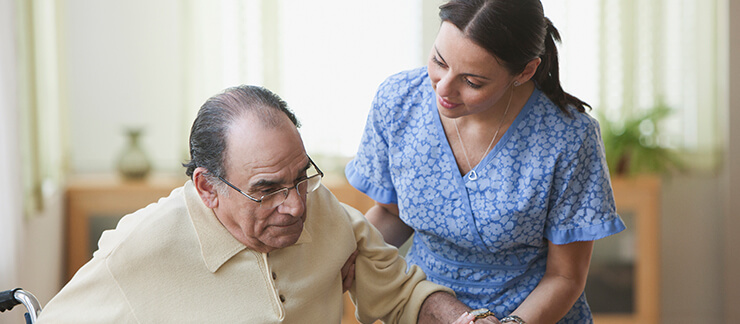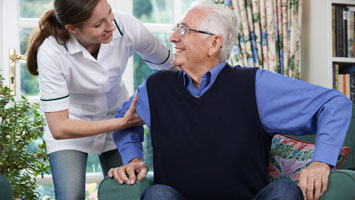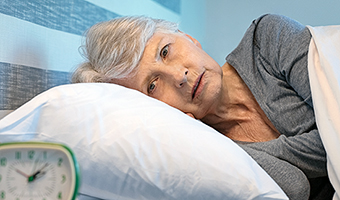8 Fall Prevention Tips for Seniors
Fall prevention is an important issue for American seniors. Approximately one-third of older adults suffer a fall every year, and of these cases, roughly one-fifth result in a serious injury such as a fracture or a head injury. Many of these injuries are severe enough to be life-threatening. In fact, a recent report by the CDC found that the number of deaths caused by falls increased by more than 30% among U.S. seniors in a ten-year span.
The good news? If seniors and caregivers take the proper precautions, the risk of suffering a fall can be dramatically reduced. This is something that we’ve taken to heart at Visiting Angels®. Our Safe & Steady Fall Prevention Program has helped countless seniors take proactive steps toward fall prevention.
But what if you want to take immediate action? Below, we’ve compiled eight fall prevention tips for seniors and their families. By addressing these concerns, elderly adults can significantly decrease their vulnerability to falls.
Tips for Elderly Fall Prevention
1. Check Prescription
One of the most common causes of falls among seniors is related to vision. Vision can change slowly so that seniors don’t even realize they aren’t seeing as well as they used to. Make sure your loved one has an annual vision check.
2. Remove Fall Hazards
More than half of all falls among the elderly occur in the home, making the removal of fall hazards an important part of fall prevention. Check walkways and high-traffic areas for fall hazards and obstructions that could result in or contribute to a fall. Common hazards include electrical cords, area rugs, furniture, and household clutter.
3. Organize Accessibly
Reaching for hard-to-access objects is one of the most common reasons for falls by elderly adults. Items on high or low shelves, or placed in obstructed storage areas, require seniors to stretch, stoop or contort their body to reach these items, which increases the risk of losing one’s balance. To avoid this problem, organize your kitchen and closets so that commonly used items are the easiest to access.
4. Let There Be Light
Seniors’ risk of suffering a fall is much higher in areas with poor lighting. Without enough light, it is harder to judge one’s footing and spot possible obstacles. Given this, seniors and their families are encouraged to focus on night lighting and stairway lighting. Make sure there’s a lamp within easy reach of the bed, ensure adequate lighting exists for middle-of-the-night visits to the bathroom and kitchen, and check that all steps and stairways are well-lit.
5. Live an Active Lifestyle
An active lifestyle is one of the best fall prevention tools available to elderly adults. Improved balance, coordination, and strength will reduce the chance of suffering a fall. Should a fall occur, these traits can also reduce the risk of injury. Look for activities that are easy on joints and provide light to moderate aerobic exercise. Daily walks, summer gardening, senior yoga, tai chi classes, and water aerobics are just a few of the best activities for elderly fall prevention.
6. Choose Smart Footwear
The right footwear can make a huge difference in fall prevention efforts. Certain types of footwear — including high heels, open-back slippers, or shoes with low-traction soles — can increase seniors’ risk of slipping or losing their balance. To minimize this risk, seniors should wear comfortable, well-fitted shoes with high-traction, non-skid soles.
7. Speak with Your Doctors
Your medical history and medication intake can have a significant impact on your risk of suffering a fall. If you’re engaged in fall prevention efforts, consider speaking with your physician about your health and whether you’re at increased risk for a fall.
8. Don’t Be Too Shy to Ask for Support
Even after following the above fall prevention tips, many seniors are still at high risk of suffering a fall. If this is the case, seniors shouldn’t be shy to ask for supportive devices or a helping hand. An assistive device like a cane or a walker can be a lifeline for seniors with back pain, bad joints, or limited strength. Many seniors also benefit from outside assistance, either from friends and family or from professional caregivers. This way, someone else can perform potentially hazardous tasks, assist with day-to-day activities, and monitor for fall hazards or signs of poor balance.
Contact your nearest Visiting Angels home care office for professional assistance with fall prevention?













